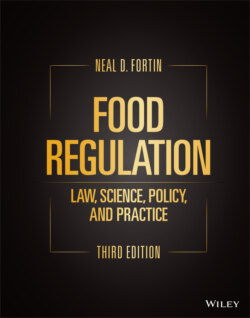Читать книгу Food Regulation - Neal D. Fortin - Страница 24
1.3.4 Case Law and Common Law
ОглавлениеBoth case law and common law are based on judicial decisions. Case law is the law established by the precedents of judicial decisions in cases (as distinguished from laws created by legislatures). Case law is important because of the tradition of following precedents. When a court addresses a legal dispute, it is usually guided by what has been decided previously in similar cases. These precedents become the case law. The general concept is that judges should follow the principles of law set down in prior decisions, unless it would violate justice or fair play to do so. Reliance on precedent serves to promote uniformity, predictability, and foster trust in a rule by law, not by person. Case law precedence is only set by the appellate courts.
Common law is the body of law based on legal tradition, custom, and general principles. Common law is embodied in case law and that serves as precedent or is applied to situations not covered by statute. U.S. common law was originally derived from English legal principles and traditions but now includes the precedents that have developed over time from the decisions of U.S. courts.
Common law generally applies only to areas of law where there is no statutory law. For example, if a firm discharges food‐processing waste on a field, and a foul smell permeates nearby homes, this may violate the common law of nuisance. Private nuisance common law might allow individuals to sue the processing plant. Public nuisance common law might allow a government official to take action. However, if a statute regulates acceptable waste‐handling methods for processing plants, then the legislative law can override the common law.
